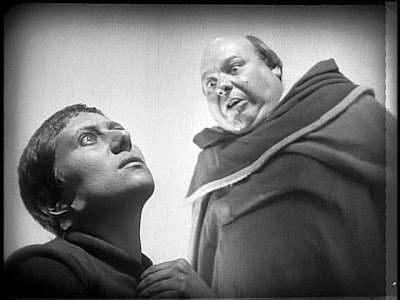Friday, 17 May 2019 10:16
Correction: An earlier version of this article wrongly attributed the comparison of Daphne Caruana Galizia with Joan of Arc to Ranier Fsadni. The correct attribution is to Steve Flinders.
Continues from yesterday’s article on ‘the role of capital’.
Part 6: Malta’s Joan of Arc

Steve Flinders compared Daphne Caruana Galizia to Joan of Arc.
Daphne was no saint but, in a secular sense, the analogy is apt. Both were homely innocuous ladies who took on a larger than life vocation. Both shared a steadfast passionate commitment to the truth and resistance to oppressive abuse of power. Both were treacherously executed in the same manner in the prime of their lives. Both were vilified during their short lives because of their mission.
Joan’s mission relied on her ‘voices’ which she resolutely defended despite scornful public scepticism. Daphne resolutely protected her own informants or ‘voices’. Both were let down in their last days by the people they were striving to help, the Dauphin and the Nationalist faction that scapegoated her for the election defeat, playing to Labour’s tune of attempting to isolate her.
The circumstances in which they lived were not too dissimilar as well. France and England were one country under English Plantagenet rule. The French were dominated and disenfranchised by their English overlords. The French were abused, misruled, demoralised, powerless and humiliated.
The political partisanship was intense and violent. The French leadership was uninspiring and wavering. In this impoverished milieu, infighting, betrayals, opportunism and self-defeatism abounded among the French.
The situation is reminiscent of Mintoff’s Malta. Malta’s history post-independence has been marred by Mintoff’s mad dog approach to politics. Because of his obsession with the class struggle, he raised partisanship to a fever-pitch and ruled his party on feudal lines. Labour governed on apartheid lines, his supporters treated as first-class citizens living off the other class.
Dom Mintoff spitefully cut off Sliema’s water supply for three months at a stretch whereas other districts had their water supply cut off two or three days a week. Life under Mintoff for the Sliema residents was a veritable drought. By royal decree, Mintoff’s Labour declared certain areas as off-limits to the political infidels: a de facto annexation of sections of Maltese territory. The only departure from Labour’s apartheid policies was when Joe Brincat decided to award social housing by lottery. But then Labour punished him as he failed to be elected in the consequent general election. The country was impoverished and the standard of living was low.
Daphne’s treatment at the hands of Labour was a slow motion rendition of Joan’s illegal trial – a tragic saga of harassment, intimidation, manipulation, depersonalisation and retribution against her and her family.
In life, Joan achieved little apart from capturing the imagination of a nation: only a modest victory over the English after almost a century of successive defeats. She was more powerful posthumously as her tragic death rallied and galvanised the French to eventually rout the English after many years. That set the basis of a reconstruction of the French state that never looked back thereafter.
The ‘Joan of Arc’ figure in Mintoff’s time was Eddie Fenech Adami. Mintoff feared his inner spiritual strength, courage, capability, self-sacrifice in the pursuit of the common good, magnanimity and incorruptibility – virtues that have never existed in Labour’s leadership. He was to provide the rallying point in his new centrist, catch-all party, encompassing different factions.
Now, the conditions in Malta are becoming somewhat similar to Mintoff’s time. The opposition is demoralised, divided and leaderless. And there do not seem to be any inspiring leaders on the horizon. Even though Labour is performing poorly, the opposition cannot rally.